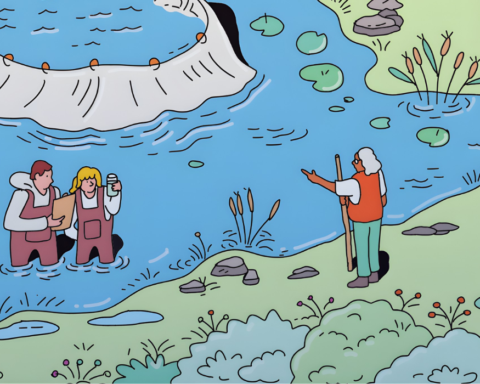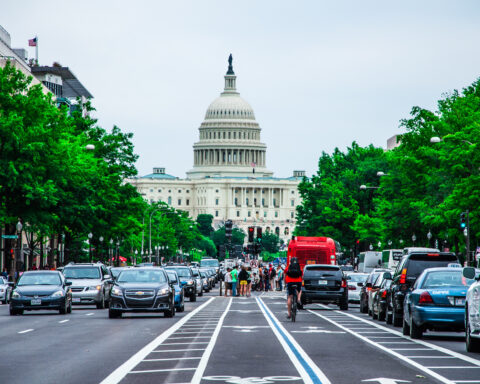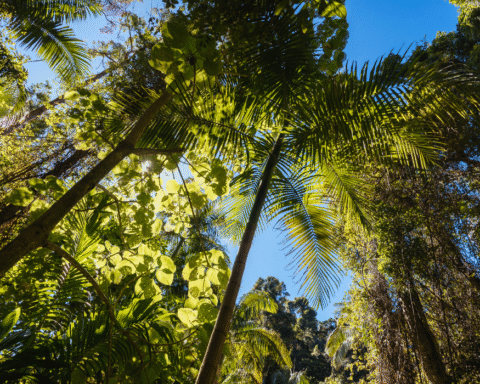In 2016, the call to “Stand with Standing Rock” echoed across Turtle Island.
What had begun as a protest against a 1,900-kilometre oil pipeline skirting Standing Rock Sioux territory and potentially threatening the tribe’s primary water source had turned into an epic battle over Indigenous rights, which resonated far and wide. Members of some 300 Indigenous nations travelled to the Standing Rock Indian Reservation in North Dakota for the Indigenous-led protest against the Dakota Access Pipeline (DAPL). As water protectors conducted ceremonies on the banks of the Missouri River, largely peaceful demonstrations were punctuated by violent confrontations, with law enforcement using tear gas, rubber bullets, tasers and other militarized equipment to crack down on protesters.
It was one of the most potent examples of the intersection between the climate, Indigenous and anti-capitalist movements on the continent. After the months-long standoff came to a close, with oil starting to flow, pipeline owner Energy Transfer LP set out to make an example of the opposition. In 2017, it sued a smattering of environmental groups, including Greenpeace International and its entities in the United States, under anti-racketeering laws, accusing them of misinformation and hindering the company’s profits. A judge dismissed that case in 2019. One week later, Energy Transfer took aim again at the high-profile climate crusaders by accusing them of defamation, “militant direct action” and “incit[ing]” protests by spreading misinformation, even though Greenpeace’s lawyers say the organization played only a minor peaceful role in the protests.
That second lawsuit came to a dramatic head in March 2025, when a jury took the oil company’s side, ordering Greenpeace International and subsidiaries to pay an unprecedented US$669 million in damages to the oil giant (which made US$4.1 billion in revenue last quarter) in a decision that was shocking for its scale and the message that it sent. Greenpeace has appealed the decision, with a raft of human rights and environmental groups dubbing it an “unfair trial” tainted by “flagrant” due process violations and posing “irreparable harm” to free speech, not to mention Indigenous sovereignty. “Energy Transfer’s false and self-serving narrative that Greenpeace manipulated Standing Rock into protesting DAPL is patronizing and disrespectful to our people,” Janet Alkire, chairwoman of the Standing Rock Sioux Tribe, wrote in a statement following the decision.
For Steven Donziger, the proceedings sounded all too familiar. In court, Energy Transfer “became the good guys who had been quote-unquote victimized by the very tribe whose culture, lands and burial sites were being destroyed by these pipelines,” says Donziger, a famed environmental lawyer who sat in on the trial as part of an independent monitoring group.
Donziger has been locked for years in a legal battle with Chevron, which was found guilty of illegally dumping toxic oil waste in Indigenous ancestral lands in the Ecuadorian rainforest in 2011. “I’ve been dealing with attacks on me from Chevron for 15 years,” Donziger says. “It’s pretty much baked into my professional life.” Donziger spent 993 days under house arrest and then in jail in the United States for refusing to hand over his cellphone in a lawsuit that Chevron launched against him and other members of the case following the Ecuador judgment.
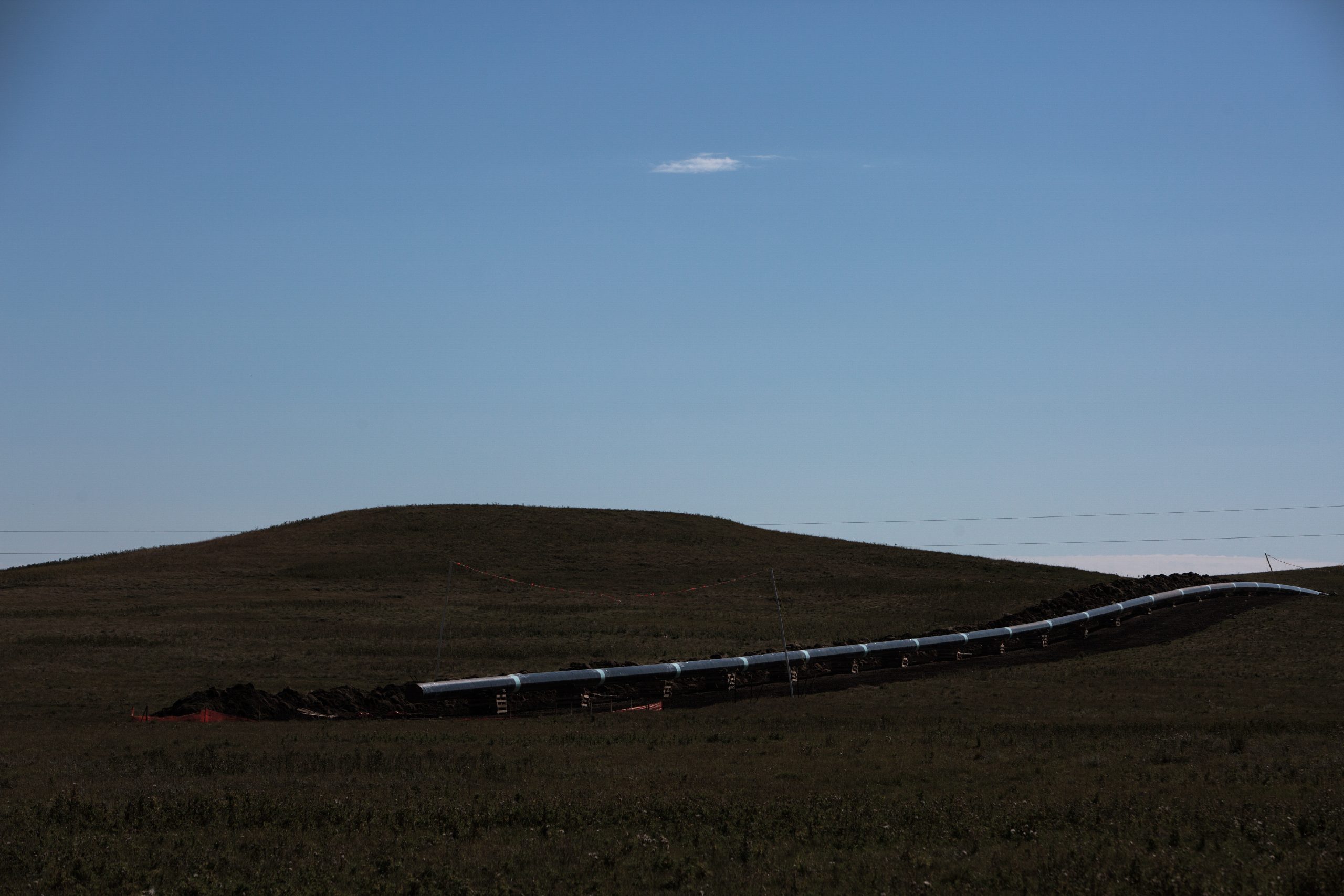
Like Energy Transfer, he says, Chevron cast itself as the victim, resorting to what legal experts call a “strategic lawsuit against public participation” (SLAPP) to intimidate and silence critics. EarthRights found 152 cases between 2012 and 2022 in which the fossil fuel industry had resorted to SLAPPs and other tactics in the United States to curb dissent. Europe, while generally less tolerant of these sorts of lawsuits, has seen their numbers climb, with 166 cases initiated in 2023. The most common driver was corruption, followed by environmental issues, according to the Coalition Against SLAPPs in Europe. Prior to the North Dakota ruling, Greenpeace launched a lawsuit in the Netherlands under the European Union’s new anti-SLAPP directive, seeking to recoup the costs incurred by Energy Transfer’s back-to-back lawsuits in the United States.
“What happened to Greenpeace, to me, is the culmination of years of work by the fossil fuel industry and other elements of the corporate sector in the United States and Canada to silence opposition to oil and gas development,” Donziger says. “This is not new. But it is an intensification.” He calls it “the ultimate existential showdown” – one that pits the fossil fuel industry’s eye-popping profits against the survival of the planet. “As the climate movement grows stronger, the industry gets more desperate – and spends more money to manipulate the legal system.”
What happened to Greenpeace is the culmination of years of work by the fossil fuel industry . . .
to silence opposition to oil and gas development.— Steven Donziger, environmental lawyer
It has all been “turbocharged” by the Trump administration and a political environment that Donziger says “favours the aggressor and disfavours those who rely on the first amendment” on free speech. Within days of his inauguration, Trump slashed environmental regulations and withdrew commitments to reduce emissions, alongside a presidential mandate to “unleash American energy” by pumping up fossil fuel extraction and exports. The administration scrubbed references to climate change from federal websites and fired scores of scientists in its cutbacks, including 400 who were working on a major congressionally mandated climate report that would detail the impacts of climate change in the United States. In April, Lee Zeldin, Trump’s head of the Environmental Protection Agency (EPA), crowed that a suite of reforms that curtailed restrictions on pollution from cars, trucks and power plants was a “dagger to the heart of the climate religion.”
Gutting funding for environmental advocates is a more subtle form of destabilizing the movement. In one of his first acts as president, Trump froze funding for the Inflation Reduction Act, the largest single piece of climate legislation in U.S. history, which included a raft of incentives for renewable energy. A court has since ordered the administration to resume funding. In the meantime, the 2026 budget includes deep cuts to climate and science funding, including a 54% cut – or US$5 billion – to the EPA and the elimination of more than $15 billion in what it calls “Green New Scam funds.”
“Grassroots work, unfortunately, isn’t for the fearful,” says Asti Robins, director of climate justice at the Power Coalition for Equity and Justice, a Louisiana-based group of community organizations, which has seen clean energy projects shuttered as federal grants are revoked. The Power Coalition is among a number of groups that raised the spectre of audits as another tool in the Trump arsenal against climate groups, with reports surfacing that groups were being asked to turn over correspondence with the EPA along with the paper trail of how they were spending money, articles of incorporation and policies. There were also worries that the president would target green groups’ tax-exempt status, but as of April the move had not occurred. Beyond the economic attacks, there has been the broader “anti-woke” attack on all things DEI – diversity, equity and inclusion – which is also a crucial part of the climate movement today. Environmental justice groups that focus on racialized communities – both in terms of the climate impact they face and ensuring that their priorities are considered in the energy transition – are reeling.
“Under this administration there’s been a closing of all environmental justice offices in government agencies,” Robins laments. “To know the leaps and bounds we’ve made in the last 10 years – of even being recognized on the stage as an actual part of the environmental movement, which has historically been white-led,” she says, only to have it stripped away through attacks on DEI initiatives, has been deeply demoralizing. “I feel like we’re going backwards.”
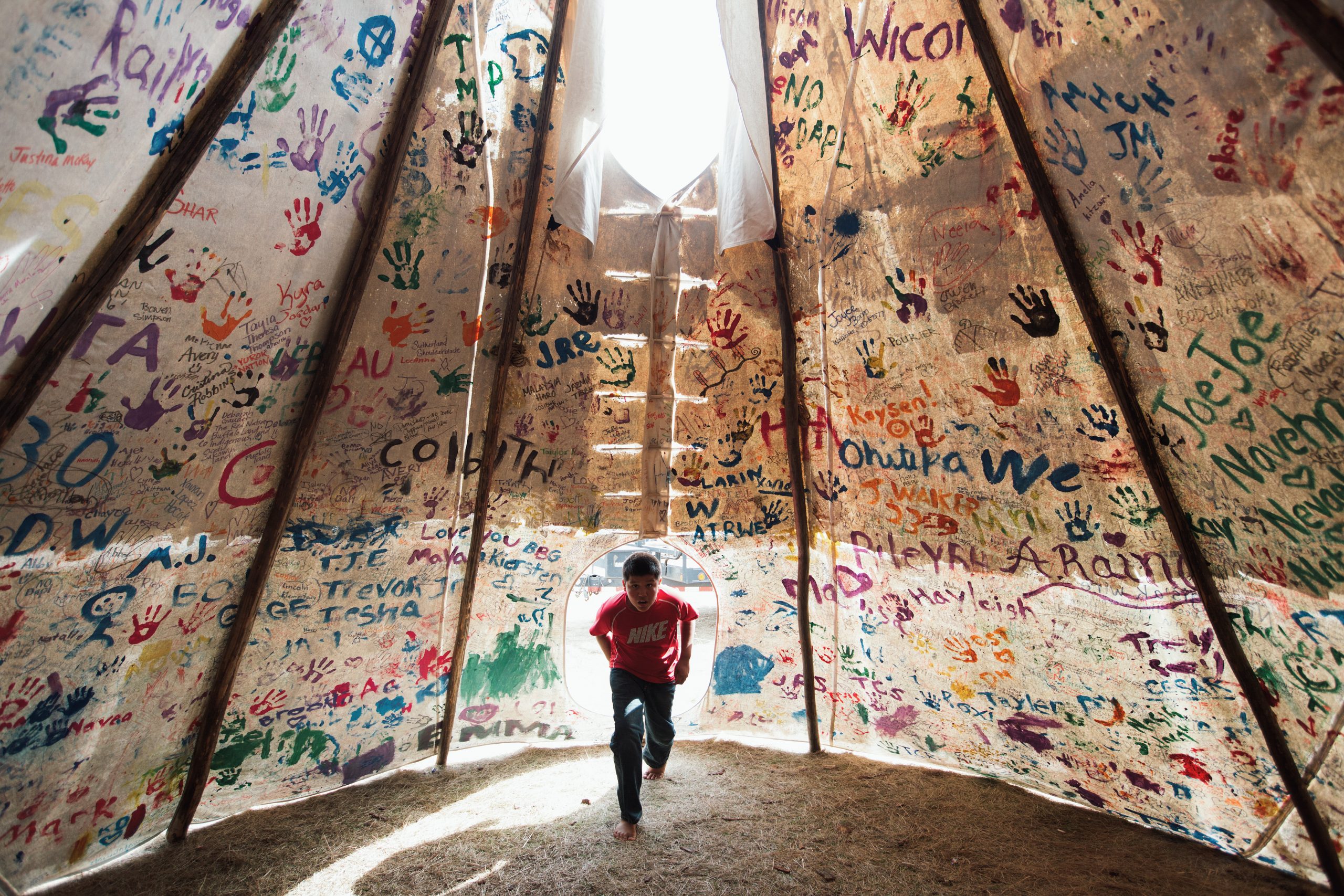
Life-or-death stakes
Curbing dissent in the green space is neither new nor exclusive to the United States. Human rights groups have documented the years-long campaign in Canada to criminalize Indigenous Wet’suwet’en land defenders who opposed the construction of the Coastal GasLink pipeline that would carry natural gas through their unceded ancestral territory in British Columbia. With the court on their side, the Royal Canadian Mounted Police carried out multiple raids between 2019 and 2023 to remove protesters from a road blocking the construction of the pipeline, which was completed last year.
Latin America is a particularly perilous location to be an environmental land defender. The latest report from Global Witness, a non-governmental group that tracks such attacks, found that 85% of the 196 land and environmental defenders who were murdered in 2023 were in Latin America. Of those, some 43% were Indigenous and 12% were women. Mining is the biggest industry driver of the attacks, according to the study, which found that 25 land defenders were killed opposing mining projects. One recent case involves Julia Chuñir, a Mapuche woman who had been living in a contested piece of forested land in the Chilean Patagonia region as a way to protect it from deforestation. She disappeared without a trace in late 2024.
No matter what they want me to call this work, I’m still going to be doing it.
—Asti Robins, climate justice director, Power Coalition for Equity and Justice
Whatever shape the crackdown on dissent takes, the stakes appear ever higher, as communities continue to advocate, in some cases around issues that mean life or death.
The Power Coalition, for example, has been trying to relocate students who attend a school that is dangerously close to a carcinogen-emitting factory in St. James Parish, Louisiana. In another project, the organization had received government funding to help communities craft local benefit agreements for hosting new carbon-capture projects. That grant was cancelled by the Trump administration. It’s one example of the kind of funding rollbacks that threaten the ability of small organizations to build capacity. In the face of this onslaught, Robins remains resolute, echoing the sentiments emanating from Greenpeace and other climate organizations that are regrouping.
“No matter what they want me to call this work, I’m still going to be doing it,” Robins says. “We have to stand with community and what they demand.”
Natalie Alcoba is a Buenos Aires–based journalist and senior editor at Corporate Knights.




